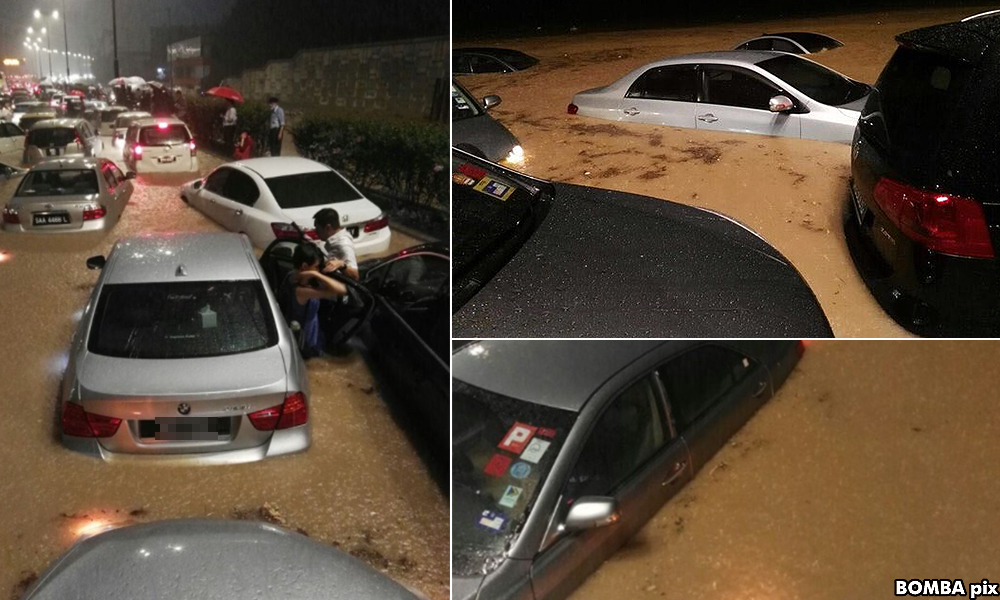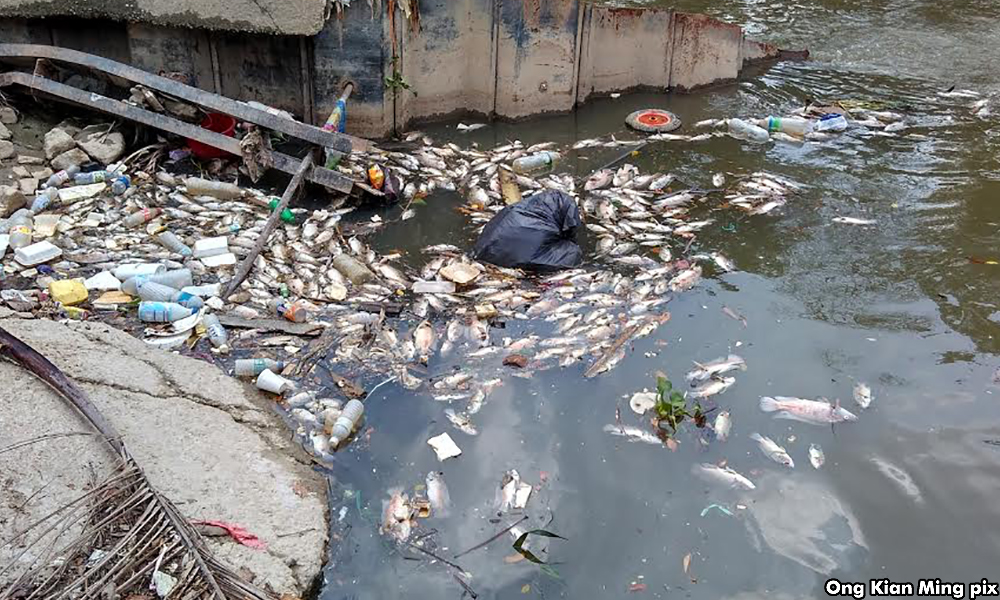
The problem of flash floods in Kuala Lumpur will be resolved when the River of Life project is completed late next year, Natural Resources and Environment Minister Wan Junaidi Tuanku Jaafar said today.
He said when the RM4.4 billion project is completed, he is confident that it and the existing Stormwater Management and Road Tunnel (Smart) project would be able tackle the flood problems.
“The area near the confluence (of the Gombak and Klang rivers) is already done. The prime minister has instructed to launch it by Aug 31, if possible, but it seems that it may be delayed because the conditions do not permit. But it’s almost done, with just a few more things that need to be sorted out.
 “For the whole river, it (will be completed) in 2018. There needs to be widening and dredging of the river to increase its capacity, because it is shallow and sedimentation is causing problems,” Wan Junaidi said in Kuala Lumpur, when asked about the progress of the project.
“For the whole river, it (will be completed) in 2018. There needs to be widening and dredging of the river to increase its capacity, because it is shallow and sedimentation is causing problems,” Wan Junaidi said in Kuala Lumpur, when asked about the progress of the project.
He was speaking to reporters after attending the launch of the International Association for Hydro-Environment Engineering and Research’s world congress with Deputy Prime Minister Ahmad Zahid Hamidi.
Apart from widening and dredging the two rivers at the heart of Kuala Lumpur, the project also entails cleaning the rivers of garbage and rehabilitating the rivers and river banks.
Flood mitigation to cost RM40 billion
Overall, Wan Junaidi said, the government estimated in 2015 that flood mitigation efforts up to 2030 would cost RM40 billion. This does not include tackling flash floods in urban areas.
In addition, he said, the government was studying the cost of tackling coastal erosion.
He said 30 percent of Malaysia’s coastlines are being eroded due to climate change, of which 10 percent are in critical condition.
“If not, many of our institutions, our roads, our infrastructures and so on may become inundated and eventually swallowed by the sea because of this erosion,” he said.
Wan Junaidi said he hoped that the Paris climate agreement of 2016 would succeed, because Malaysia would not be able to tackle the problem of climate change alone.
The Paris agreement is aimed at limiting the global average temperature increase to less than 2°C, compared with the 1880 levels, in a bid to stave off the worst effects of climate change.
The global average temperature last year was 14.79°C, which is 1.05°C above the 1880 average. This is expected to increase in the coming decades, which climatologists have warned would make extreme weather events, such and floods and droughts, more severe and frequent.
Asked about the recent spate of floods in Penang, Malacca, Kota Kinabalu and other areas, Zahid said the Meteorology Department had been able to provide warnings seven days in advance, despite the changing climate.
This had allowed emergency services to prepare for the floods. However, Zahid said that in the future, rivers would need to be dredged and water catchment areas would need to protected from logging.
Wan Junaidi pointed out that August is supposed to be a dry season in Malaysia.
Instead, rains are seen throughout the Asean region, and this was expected to persist until September. He also warned that the coming dry season would make other problems, such as haze, more likely. - Mkini


No comments:
Post a Comment
Note: Only a member of this blog may post a comment.